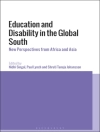Children are frequently cared for by relatives and friends when parents, for whatever reason, are unable to care for their children themselves. Yet there has been very little information about how well children do when placed with kin or how safe they are in these placements.
This book compares formal kinship care to traditional foster placements in order to ascertain which children are placed with kin, in what circumstances, how well such children progress, and how often these placements disrupt. The authors explore whether children placed with family and friends fare better or worse than other foster children, what services are provided and needed, and how kin care is experienced by carers, children and social workers.
This book will be essential reading for social workers, policy makers, students and all those working with looked-after children, and will enable local authorities to make informed decisions about where best to place children and the support needed by family and friend carers.
Table des matières
Acknowledgements. Part I: The Study. 1. Background. 2. The Design. Part II: Comparing Kinship and Non-related Foster Care. 3. Who Were the Carers and Which Children Were Placed With Them? 4. Placement Making and Progress. 5. Placement Outcomes. Part III: Overview of Kin Placements. 6. Placing Children with Kin: Assessment and Financial Support. 7. Placement Progress: The Children’s Behaviour and Service Provision in Kin Care. 8. Caring for Children: Contact, Standards of Care and the Impact of the Children on the Kin Carers. 9. The Perspectives of the Social Workers, Children and Parents on Kinship Care. 10. Implications for Policy and Practice. Appendix: Variables Used in the Regression Analysis. References. Notes. Subject Index. Author Index.
A propos de l’auteur
Sue Moyers is a visiting fellow in the School for Policy Studies at Bristol University. She has spent many years in research with looked-after children and foster carers.












